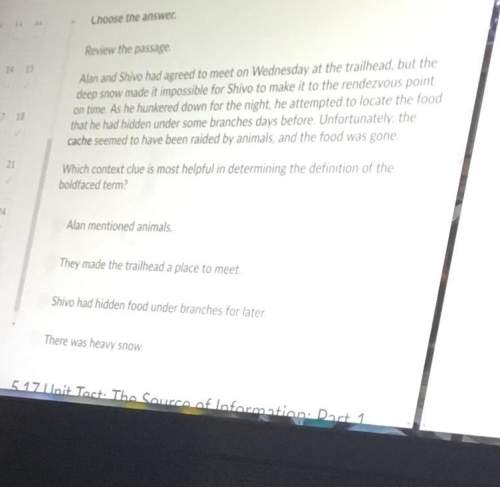
English, 29.01.2021 19:20 Phalanndwachris8740
The following question references the novel The Three Musketeers by Alexandre Dumas. D'Artagnan doesn't notice Kitty's interest in him. Dumas writes with regard to this that "He who hunts the eagle heeds not the sparrow." What is Dumas saying with this phrase? Who is the eagle, and who is the sparrow?

Answers: 1


Another question on English

English, 21.06.2019 23:10
What is the meaning of each underlined word in these excerpts from "a modest proposal" by jonathan swift? i think it is agreed by all parties, that this prodigious number of children in the arms, or on the backs, or at the heels of their mothers, and frequently of their fathers, is in the present deplorable state of the kingdom, a very great additional grievance; and therefore whoever could find out a fair, cheap and easy method of making these children sound and useful members of the common-wealth, would deserve so well of the publick, as to have his statue set up for a preserver of the nation. some persons of a desponding spirit are in great concern about that vast number of poor people, who are aged, diseased, or maimed; and i have been desired to employ my thoughts what course may be taken, to ease the nation of so grievous an incumbrance. the word prodigious means . the word desponding means .
Answers: 1


English, 22.06.2019 02:40
Read the passage from sugar changed the world. sugar is a taste we all want, a taste we all crave. people throughout the planet everywhere have been willing to do anything, anything at all, to get that touch of sweetness. we even know exactly how thrilling it was to taste sugar for the first time. when the lewis and clark expedition met up with the shoshone, who had little previous contact with old world products, sacagawea gave a tiny piece of sugar to a chief. he loved it, saying it was "the best thing he had ever tasted." sugar created a hunger, a need, which swept from one corner of the world to another, bringing the most terrible misery and destruction, but then, too, the most inspiring ideas of liberty. sugar changed the world. we begin that story with a man who could never know enough. how does the conclusion of the prologue support the authors’ purpose? select two options. it introduces the topic that will be addressed next. it provides information about the authors. it states why the topic is relevant to readers. it cites sources the authors used in the text. it explains how the authors came to study the subject.
Answers: 1

English, 22.06.2019 03:30
What type of persuasive appeal seeks to show that an argument is correct or valid
Answers: 1
You know the right answer?
The following question references the novel The Three Musketeers by Alexandre Dumas.
D'Artagnan doe...
Questions





History, 16.01.2020 20:31

Health, 16.01.2020 20:31










Social Studies, 16.01.2020 20:31







